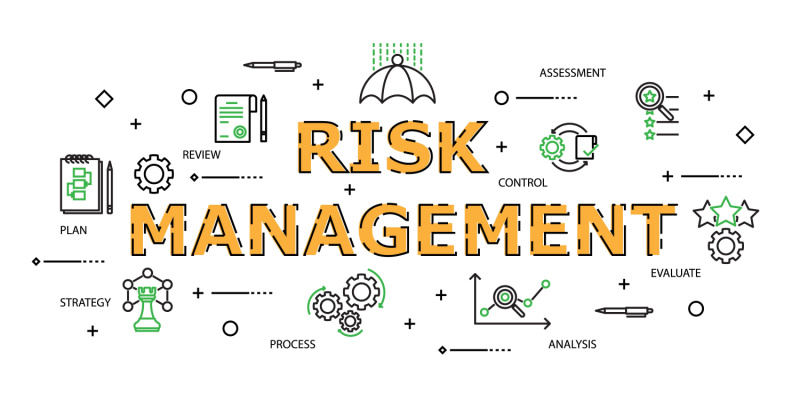
+971 58 539 7665

+65 9616 5641

+91 78994 42930

Operational risk management is a protection that secures a company's business continuity and avoids risks associated with its reputation. ORM, or operational risk management, handles a company's continuous procedures, including standard operational concerns like market or credit risk. Poor operational risk management may lead to severe disruptions in business continuity, such as the risk of fraud in a bank's payment system, which can result in significant losses. Let us discuss the importance of operational risk management in business under the guidance of a risk management consulting service here.
ORM encompasses all risk assessment methods of the business's ongoing processes, risk decision-making, event management, risk control implementation, and indications to determine the inherent risks to business operations. It can then monitor and avoid them in the future. Problems can emerge during normal company operations, and these issues might be severe enough to interrupt operations and hinder the organization from accomplishing its goals. External events can cause operational hazards. One example is natural calamities that threaten business but are beyond the company's control. Terrorists, fraudsters, cybercriminals, vandals and other crooks may pose operational threats to a corporation.
Many operational hazards are internal. In many circumstances, operational risks result from errors, oversights, or wrongdoing by those involved in a company's operations. An employee, for example, may violate business policy by participating in illegal or unethical financial practices. Other incidents could be unintentional or the result of carelessness. An employee may fail to properly maintain equipment, resulting in equipment breakdown. Their inadequate cybersecurity procedures may cause data breaches or provide access to thieves. Failure to follow processes precisely may result in administrative errors.
Organizations have faced operational risk, but the composition of some operational hazards has shifted in recent years. New rules and regulations, for example, can have an impact on issues such as liability and moral responsibility. While technological advancements are generally positive, they can cause issues if people do not understand how to properly maintain technology or use systems. External dangers may be exacerbated by global warming and civil unrest. Because operational risk is continuously evolving, risk managers must constantly look ahead.
As operational risk cannot be removed entirely, it can be managed by following these steps:
Fortius offers top-notch Business Consulting and CFO Services to businesses in Dubai and the UAE. In addition to full-time CFO services, we also offer virtual or interim options. We assist businesses to achieve greater profitability, improve operational efficiency, increase management capability, upgrade internal processes and more.
DuPont studied both small and large corporations to find the significant reasons why businesses invest in ORM, and the 5 key drivers were:

Security
As previously said, safety is a primary motivator for investing in risk management. Keeping all stakeholders safe when dealing with the organization is critical to maintaining smooth activities.
Compliance
Another apparent key factor is compliance. Businesses believe it is critical to operating their organizations in a manner compatible with market laws and regulations. Noncompliance with such standards may impede the company's operating activities, result in fines, and harm the organization's reputation.
Preventing Shutdowns
Avoiding unscheduled shutdowns was identified as a critical driver for businesses, which is unsurprising considering the harm such shutdowns do. Unplanned shutdowns incur high unanticipated costs, which can severely impair a company's profitability as well as its growth and expansion. Firms can use ORM to prepare for such scenarios, saving time and money spent on handling the meltdown.
Also Read : Significance of Risk Management Services
Improved Driving Performance
Many businesses considered the long-term advantages of ORM and concluded that driving productivity was a primary motivator for investing in risk management. It not only enables businesses to review their operations and identify hazards, but it also enables them to identify areas for improvement, resulting in increased overall performance.
Protect Reputation
Last but not least, respondent organizations claimed that reputation was essential in investing in ORM. With today's social media, reputational damage may spread quickly and do significant harm. Communication plans must be part of the standard controls of every business, large or small.
Closure
A dedicated risk management focus benefits all firms. Recognizing that these aspects are interconnected and influence one another is critical. For example, a rise in performance and safety will almost certainly boost a company image, but an operational stoppage will do the reverse. Improved performance can reduce the likelihood of unscheduled shutdowns. It is critical for businesses to invest in ORM because it helps them to deeply understand the processes underlying their operations and opens up chances for changes that improve safety, minimizes risk, and increase the company's long-term profitability. Get in touch with Fortius Consulting Services, one of the best business consulting and CFO services in UAE, if you want guidance in managing risks in your organization.
